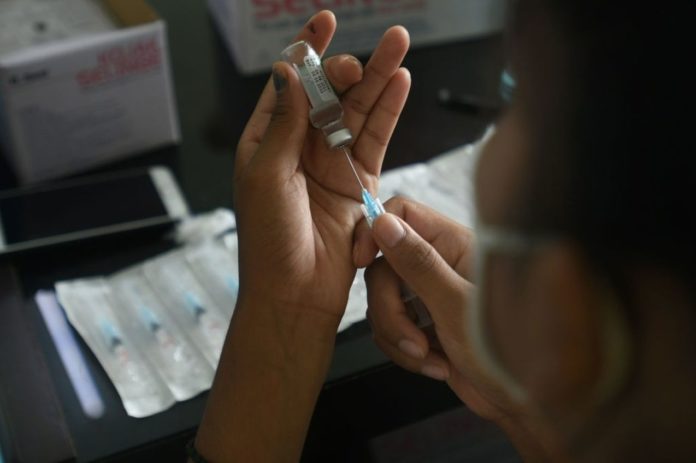According to evidence compiled by the ZOE COVID Study app, there is “only” one Covid symptom that is more frequently reported in people who have received all recommended vaccinations.
The number of Covid-19 cases this week reached its highest level since January, according to the health records.
This week, the seven-day average of cases reached 164,000, the highest level since Jan. 26, when the terrible winter surge was at its peak.
It is worth emphasizing that an increase in cases and deaths does not necessarily indicate that immunizations are not working as planned.
A new report released by the ZOE COVID Study app, which evaluates insights from millions of contributors, demonstrates that having two or more shots of a COVID-19 vaccine not only greatly reduces a person’s risk of contracting COVID-19, but also significantly reduces the severity of infection if a person does contract COVID-19.
This indicates that the number of deaths and illnesses is a tiny fraction of what it would be in an otherwise uninfected population.
COVID-19, on the other hand, can still infect persons who are fully vaccinated.
Additionally, even if you are fully jabbed, you may still suffer the whole range of COVID-19 symptoms.
According to research conducted by the researchers behind the ZOE COVID Study app, the most common symptoms are comparable to those experienced by unvaccinated individuals.
Anosmia (loss of smell), cough, fever, headaches, and weariness are just a few examples.
All of these symptoms, however, were milder and less often reported in fully vaccinated, and they were half as likely to experience multiple symptoms during the first week of illness.
“Sneezing was the only symptom which was more commonly reported in vaccinated people with COVID-19,” the research team wrote.
While there is still a risk of catching COVID-19 following repeat vaccination, there are significant reductions in the probability of being inpatient, having severe symptoms, or developing long-lasting symptoms, they stated.
The evidence is encouraging.
Adults who received a double vaccination are actually 47 percent less likely to get Long Covid if they contract a COVID-19 infection, according to research published in Lancet Infectious Diseases.
Long Covid defines coronavirus symptoms that last 12 weeks or longer.
Common long COVID symptoms include:
- Extreme tiredness (fatigue)
- Shortness of breath
- Chest pain or tightness
- Problems with memory and concentration (“brain fog”)
- Difficulty sleeping (insomnia)
- Heart palpitations
- Dizziness
- Pins and needles
- Joint pain
- Depression and anxiety.
According to specialists, if you’re concerned about symptoms four weeks or longer after receiving COVID-19, you should consult your GP.
They may advise certain tests to elucidate your symptoms and rule out other possible causes.
These might include:
- Blood tests
- Checking your blood pressure and heart rate
- A chest X-ray.
